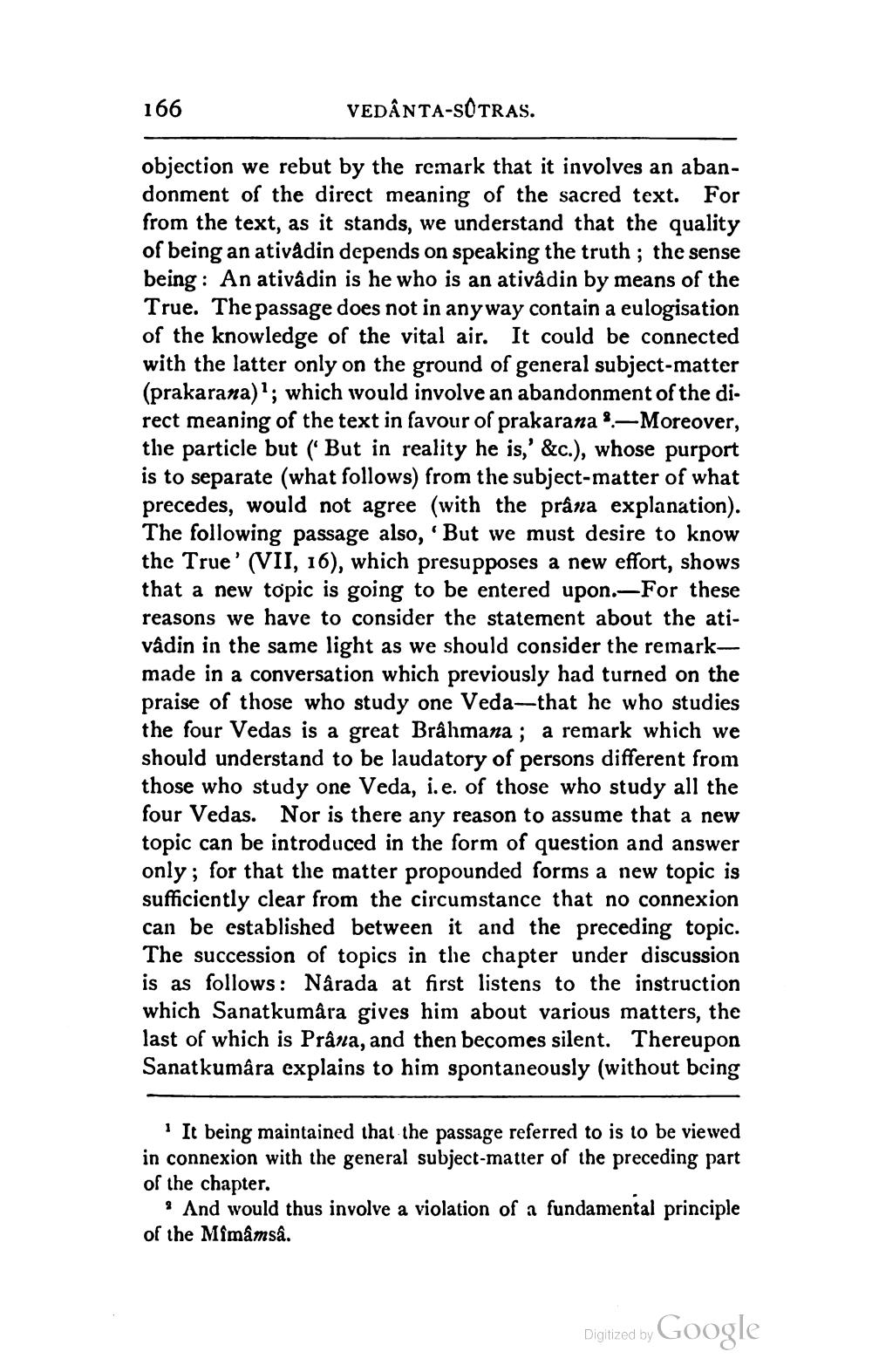________________
166
VEDÂNTA-SOTRAS.
objection we rebut by the remark that it involves an abandonment of the direct meaning of the sacred text. For from the text, as it stands, we understand that the quality of being an ativadin depends on speaking the truth; the sense being : An ativadin is he who is an ativadin by means of the True. The passage does not in any way contain a eulogisation of the knowledge of the vital air. It could be connected with the latter only on the ground of general subject-matter (prakarana)'; which would involve an abandonment of the direct meaning of the text in favour of prakarana - Moreover, the particle but ('But in reality he is,' &c.), whose purport is to separate (what follows) from the subject-matter of what precedes, would not agree (with the prâna explanation). The following passage also, 'But we must desire to know the True' (VII, 16), which presupposes a new effort, shows that a new topic is going to be entered upon.-For these reasons we have to consider the statement about the ativâdin in the same light as we should consider the remarkmade in a conversation which previously had turned on the praise of those who study one Veda--that he who studies the four Vedas is a great Brâhmana ; a remark which we should understand to be laudatory of persons different from those who study one Veda, i.e. of those who study all the four Vedas. Nor is there any reason to assume that a new topic can be introduced in the form of question and answer only; for that the matter propounded forms a new topic is sufficiently clear from the circumstance that no connexion can be established between it and the preceding topic. The succession of topics in the chapter under discussion is as follows: Narada at first listens to the instruction which Sanatkumara gives him about various matters, the last of which is Prâna, and then becomes silent. Thereupon Sanatkumara explains to him spontaneously (without being
It being maintained that the passage referred to is to be viewed in connexion with the general subject matter of the preceding part of the chapter,
. And would thus involve a violation of a fundamental principle of the Mîmâmsa.
Digitized by
Digized by Google




